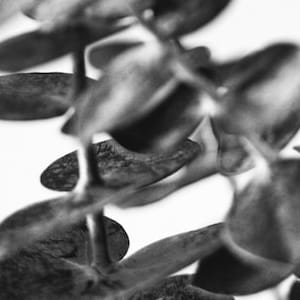wither on the vine: Idiom Meaning and Origin
What does ‘wither on the vine’ mean?
Idiom Analysis:
"Wither on the vine" means to gradually and inevitably become weak, lose strength, or fail due to neglect or lack of action.

Idiom Explorer
The idiom "willow in the wind" refers to someone who is easily influenced or swayed by others. It suggests that this person lacks the ability to make independent decisions and is instead easily moved by the opinions or actions of those around them.
The idiom "wear thin" means to gradually lose one's patience, endurance, or tolerance towards something or someone. It implies that the situation or person is becoming annoying, irritating, or tiresome over time.
The idiom "waste away" means to gradually become weaker, thinner, or less healthy, often due to illness or lack of proper care. It implies a continuous decline in physical condition or overall well-being.
The idiom "vanish into thin air" means to completely disappear or vanish without a trace, as if one has evaporated into nothingness.
The idiom "the sun sets on something" means that something is coming to an end or reaching its completion.
An idiom used to describe someone who is physically or mentally weak or ill. It can also refer to a country or system that is struggling or in decline.
The idiom "on the wane" means that something is declining or decreasing in strength, popularity, or influence. It describes a gradual and noticeable decline in a particular situation or condition.
The idiom "on one's last legs" means being in a very weak or near-failing state, usually referring to a person, animal, or thing that is exhausted or deteriorating.
The idiom "on a losing wicket" means being in a situation where success is unlikely or the odds are against you.
The idiom "in vain" means to do something without achieving the desired outcome or result. It emphasizes the futility or lack of success in one's efforts.
Unveiling Decay
Wither on the vine is an English idiomatic expression that signifies something or someone failing to develop or progress, ultimately coming to an unfortunate end or demise. This idiom is rooted in an agricultural metaphor, drawing imagery from the natural process of a plant wilting and dying on its vine due to lack of nourishment or care.
The origins of the idiom can be traced back to the mid-19th century. It is believed to have been inspired by the physical act of a plant wilting and decaying on the vine, which was a common phenomenon in farming communities.
The figurative meaning of the expression emerged as a way to convey the notion of something stagnating or failing to gain momentum, much like a plant that fails to thrive and bear fruit. The metaphorical connotation suggests a sense of disappointment, loss, or wasted potential.
Over time, "wither on the vine" gained popularity and became a frequently used phrase in the English language. It is now widely understood and employed, particularly in contexts where the subject of discussion pertains to the failure or decline of a project, initiative, or individual.
The idiom is often used in situations involving missed opportunities, negligence, or lack of attention. For example, one might say "The company's new marketing campaign was promising, but it withered on the vine due to poor implementation and coordination."
The imagery evoked by the idiom effectively captures the fading vitality and potential of a plant as it slowly succumbs to deterioration. This creates a vivid visual representation in the minds of native English speakers, making the expression impactful and memorable.
However, the idiom can be interpreted differently based on the context in which it is used. While it primarily emphasizes failure and decay, it can also imply a sense of missed opportunity or unrealized potential. This ambiguity allows for a variety of nuanced interpretations, contributing to the idiom's versatility and enduring relevance.
Another related idiom that conveys a similar idea is "die on the vine." This expression is used to describe something or someone failing to achieve their full potential or coming to a premature end. The imagery of a plant dying on its vine is once again employed to evoke a sense of disappointment and wasted potential.
A similar expression is "on the wane." This phrase is used to describe something gradually decreasing or diminishing in importance, popularity, or influence. It suggests a decline or weakening of a person, idea, or phenomenon, similar to how a plant on the wane loses its vigor and vitality.
The idiom "waste away" is also related to the concept of "wither on the vine." It is used to describe someone or something gradually deteriorating or declining, often due to neglect or lack of care. This idiom implies a sense of gradual wasting or wasting, just like a neglected plant withers away and loses its vitality.
Lastly, the expression "fall by the wayside" is another idiomatic phrase related to the concept of stagnation and failure. It conveys the idea of someone or something being left behind or abandoned, unable to keep up with others or progress further. This idiom shares the imagery of a plant withering and dying on the vine, as it suggests a similar sense of being left behind or unable to keep up with the prevailing circumstances.
The idiom "wither on the vine" and its related idioms such as "die on the vine," "on the wane," "waste away," and "fall by the wayside" all convey the notion of something or someone failing to develop or progress, ultimately meeting an unfortunate end or demise. Rooted in agricultural metaphors, these idioms have become widely recognized phrases that effectively capture the concepts of stagnation, decay, and wasted potential. Their enduring popularity and versatility are testament to the power of idiomatic expressions in the English language, as they offer unique insights and evoke vivid imagery in concise and memorable ways.
Example usage
Examples of how the idiom "wither on the vine" can be used in a sentence:
- The company's plans for expansion will wither on the vine unless they secure more funding.
- I fear that the government's proposed policy reforms will simply wither on the vine without the necessary support.
- Without proper maintenance and attention, a once thriving garden will slowly wither on the vine.
More "Neglect" idioms



